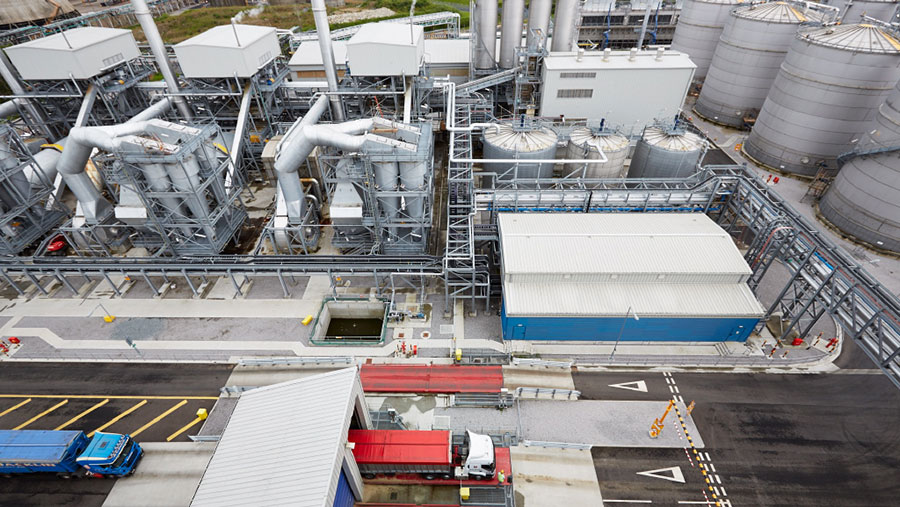Red Tractor paperwork crucial to access biofuels market
 © Vivergo Fuels
© Vivergo Fuels Arable farmers will have to produce new “mass balance” figures – essentially stock and movement records – from 1 July, in order to achieve Red Tractor status to supply the growing biofuels market.
The rule changes are being introduced to meet the requirements of the EU’s updated Renewable Energy Directive – RED II – which sets standards and targets for producing and trading in biofuels.
See also: Red Tractor – the pros and cons of farm assurance scheme
In particular, it aims to increase the use of renewable energy (to 32% of total energy by 2030), while preventing environmentally beneficial land from being diverted into crops for biofuel.
Even though the UK has left the EU, the government’s own Renewable Transport Fuel Obligation is expected to mirror the changes.
Standards
To be able to participate in the biofuels market – both in the UK and overseas – UK cereals, oilseeds and sugar beet must meet so-called RED II standards.
For the past 10 years, this has been achieved through being part of Red Tractor, with farmers simply declaring they have not grown grain for biofuels at the expense of ecologically sensitive land.
But to continue this blanket approach, members will now have to provide additional information at audit, to demonstrate that grain leaving the silo came from the assured farm.
Specifically, they will have to produce a mass balance calculation for each site, showing the quantity of grain stored post-harvest, any carryover from the previous year and quantities of grain which leave the farm.
Biofuels market set to expand
Despite the additional record-keeping, Red Tractor insists this is good news for farmers, as the biofuels market is set to expand, with the introduction of so-called E10 petrol (containing 10% bioethanol) in September, and the planned reopening of the Vivergo bioethanol in the North East.
Red Tractor chief executive Jim Moseley said: “The bioethanol market is set to grow at home and abroad this year, and we’re pleased that our assured crop members will be able to take full advantage, without incurring extra cost.”
But Staffordshire arable grower Clive Bailye, who often criticises Red Tractor, questioned the need for such additional measures.
“I accept that the RED II issue is a UK biofuels thing, and I’m not blaming Red Tractor or the NFU for these requirements, which are needed to be able to sell into those markets.
“But I do question why I – as a milling wheat producer, who does not sell for biofuels – should have to do yet more for my Red Tractor audit to meet RED II. Shouldn’t there just be a specific audit for those selling biofuels?
“It also seems to me that the biofuels market should be the outlet for non-assured grain, as it is not being used for human consumption.”
Better prices
But Red Tractor crops sector chairman Guy Smith explained that using a more specialised RED II audit would incur extra bureaucracy and cost on farmers.
He also maintained that, if UK growers were able to service the biofuels sector next season, this would benefit grain prices for all, while providing further options for oilseeds.
NFU vice-chairman Tom Bradshaw suggested on Twitter that Vivergo’s presence in the market alone could be worth an extra £15/t on wheat compared with having to export any UK surplus.
